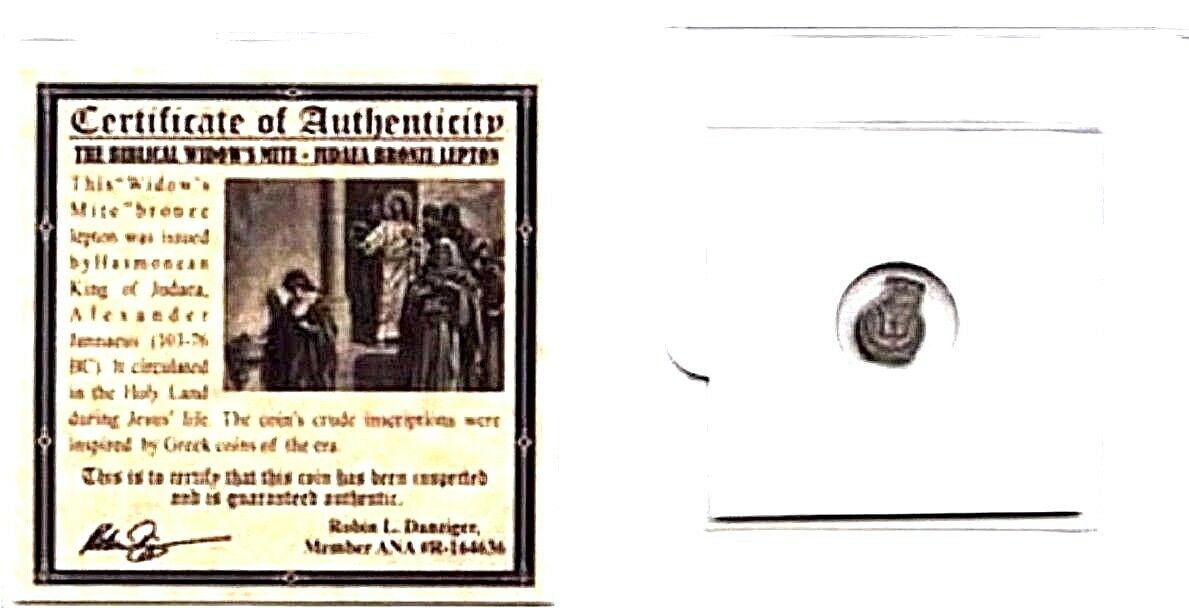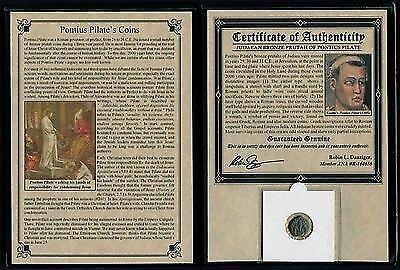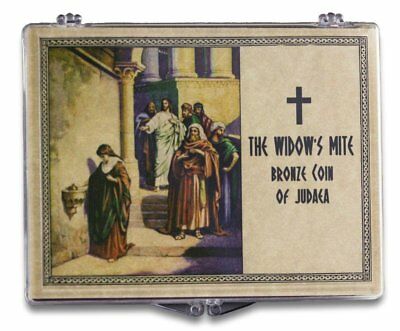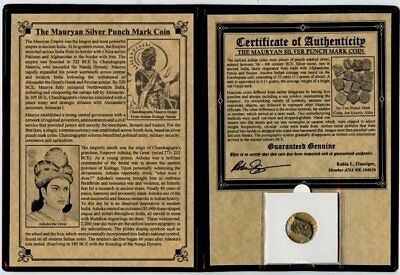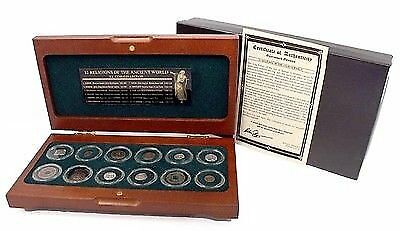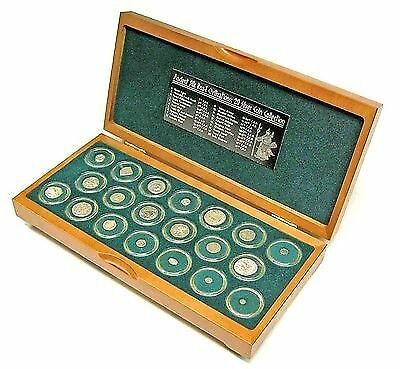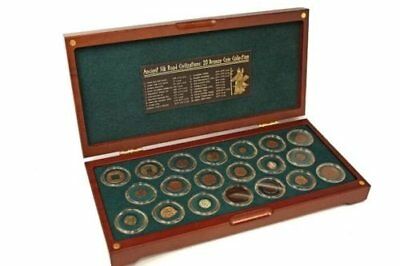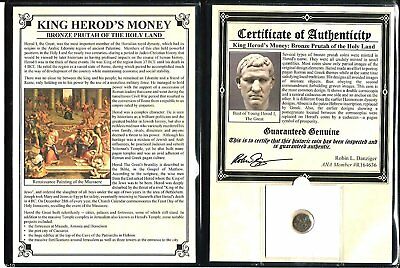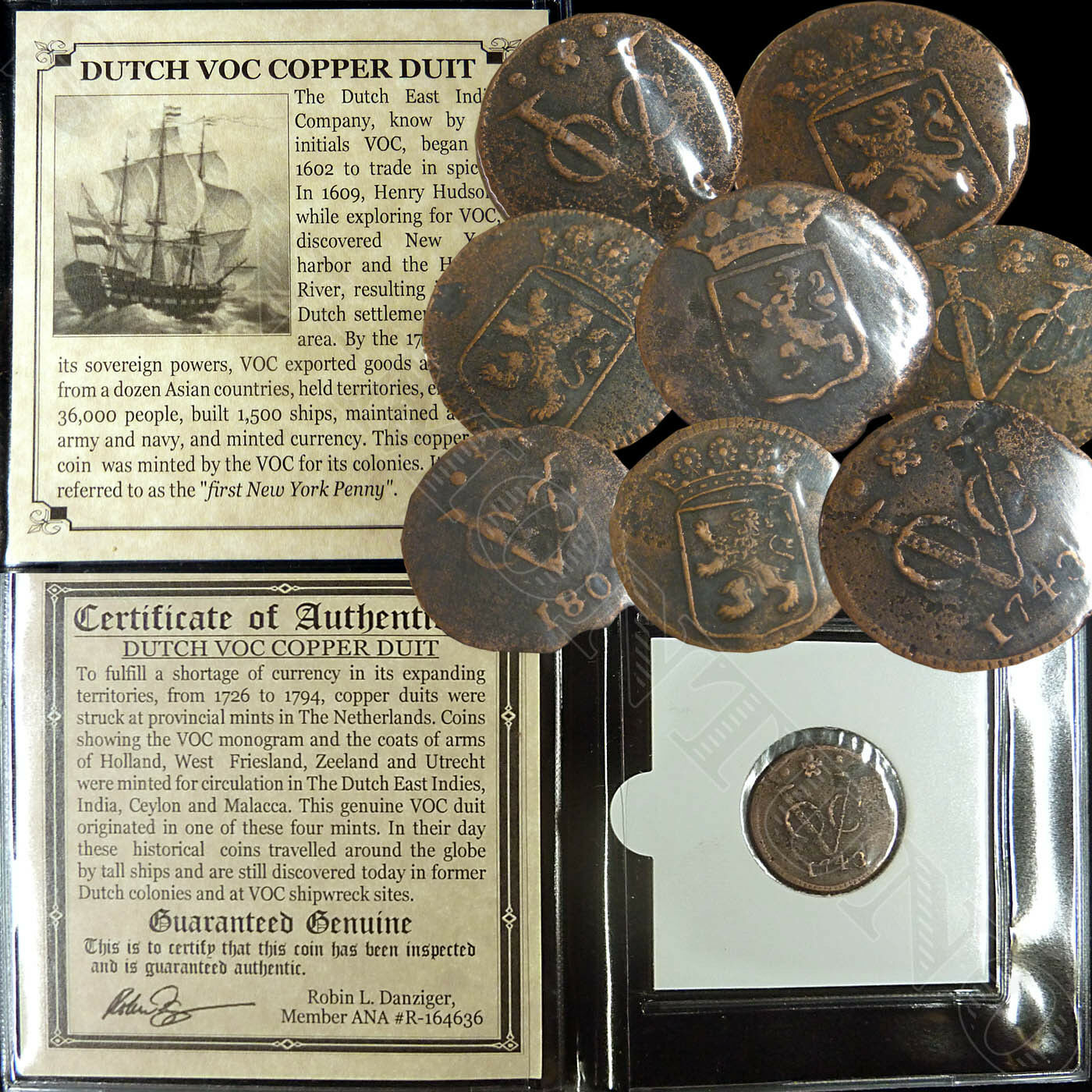-40%
One(1) ANCIENT Widow’s Mite Coin of King Janeaus, Bronze Lepton,Mini Album,Story
$ 26.69
- Description
- Size Guide
Description
One(1)ANCIENT Widow’s Mite Coin of King Janeaus, Bronze Lepton,Mini Album,Story,Certificate.
Bronze lepton of Alexander Janeaus, king of Judea, minted ca. 100 BCE. The “widow’s mite” mentioned in the Gospels of Mark and Luke – Jesus’ parable about a poor widow who gave “two mites...all she had.
This coin is not a replica, but an actual bronze coin, certified genuine, minted in the Holy Land over 2000 years ago during the reign of King Alexander Jannaeus in the century preceding the birth of Jesus. What makes these coins of great historical and religious importance is that twice in the Bible, Jesus is quoted as telling the story of the poor widow who gave all that she had which was just two mites. The coin enclosed is identical to the type of coin she would have had. These coins have been known to collectors for hundreds of years as “Widow’s Mites” These coins are an actual part of the historical record— a unique, ancient artifact that was handled and used in market stalls by villagers, desert traders, holy men, and Roman soldiers alike in every day transactions. “And Jesus sat over against the treasury, and beheld how the people cast money into the treasury; and many that were rich cast in much. And there came a certain poor widow, and she threw in two mites, which make a farthing. And he called unto him , his disciples, and saith unto them , Verily I say unto you, This poor widow hath cast more in, than all they which have cast into the treasury; For all they did cast in of their abundance, but she of her want did cast in all that she had, even all her living”—Mark, 12:41 “And he looked up, and saw the rich men casting their gifts into the treasury. And he saw also a certain poor widow casting in thither two mites. And he said, Of a truth I say unto you, that this poor widow hath cast in more than they all: For all these have their abundance cast in unto the offerings of God: but she of her penury hath cast in all the living that she had.”— Luke, 21:1 Although it is common to view in museums, it is a rare opportunity to actually hold an object of this age and importance in your hands. These coins typically circulated for very long periods and most specimens became worn smooth. It is because of the discovery of an ancient hoard that a limited number of coins of this superb level of preservation are available.
This “Widow’s Mite” coin is a genuine bronze coin issued by King Alexander Jannaeus, the Great Grand Nephew of Judah Macabee and the Jewish leader of the Holy Land from 103-76 B.C. It is this type of coin that circulated in the Holy Land during Jesus’ life. The two dominant symbols that are found on the coin are an anchor and a star with 8 rays. Occasionally Greek lettering is seen on these coins around the anchor illustrating the prevalence of Greek cultural influence that was evident during Jannaeus’ reign.
Over 23,000 positive feedbacks
NGC Member
ANA Platinum Member
All Items Ship Priority Mail.

